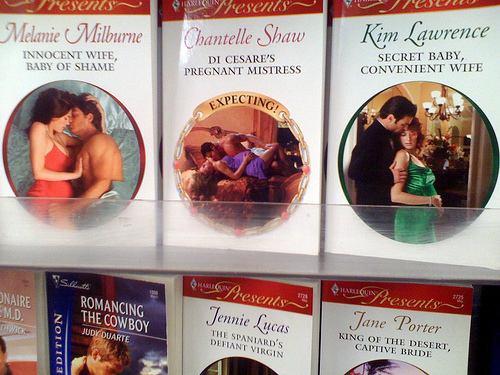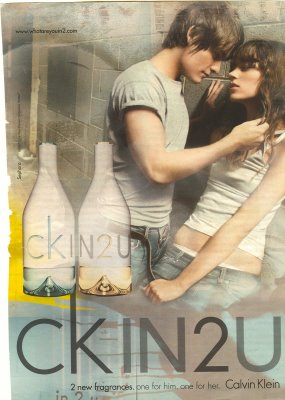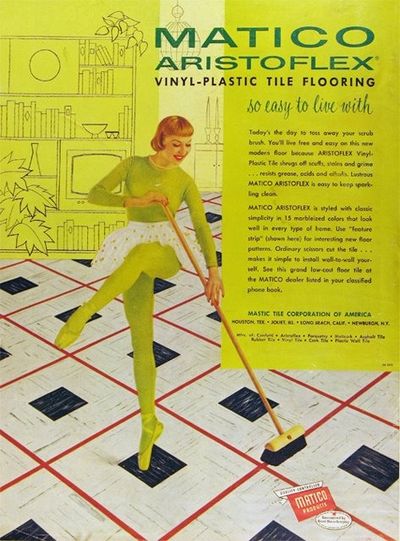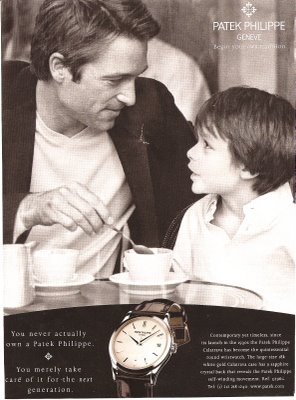Were you aware there is a sub-genre of romance novels focusing specifically on pregnant women? I wasn’t.
I like the titles–Innocent Wife, Baby of Shame…so scandalous! Here’s a link to the image.
I am not, at this very moment, entirely certain of how you could use these in a sociology course–I guess in a discussion of how we think of pregnant women’s bodies (are they beautiful or not?), how we feel about pregnant women have sex or of men being attracted to pregnant women who aren’t their wives (I bet a good number of people would find it kind of creepy), or whether we still think there is such a thing as a “baby of shame.” It’s interesting that the women are pregnant but still very skinny everywhere but in their “baby bump,” as the tabloids call it these days. This might be a starting point for a discussion of changing ideas of pregnancy–that the amount of weight you’re “supposed” to gain has decreased, that pregnant women ideally say thin everywhere else, and that they’re supposed to lose the weight immediately. Or you could contrast pregnancy with just being “fat”–can you imagine a similar sub-genre of romance novels with large, non-pregnant (or even pregnant) women?
Whether or not they’re useful, I know that they’re funny. Secret Baby, Convenient Wife? Awesome!
Thanks to Jason for sending it along!










